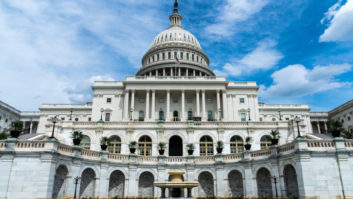The author is membership program director of the National Federation of Community Broadcasters. NFCB commentaries are featured regularly at www.radioworld.com.
Many watched the recent battle over YouTube and conservative commentator Steven Crowder with much interest. At the heart of the dispute is the matter of criticism and how it shapes online discourse. For community radio, and anyone leading an organization, the obligations of employers and media outlets where volunteers serve is a subtext that can’t be ignored.
For the unfamiliar, a video producer employed by Vox Media has publicly spoken up about online harassment and threats. Crowder has been cited for his numerous insults of the producer. My concern, however, comes back to how an employer is protecting staff members who reveal abuse they receive while doing their jobs.
[Read: Community Broadcaster: Do You Matter?]
Harassment of radio DJs is nothing new. In March, a man was indicted for stalking a Texas on-air personality, including breaking into her home and taking photos of her as she slept. While surely not as terrifying, in the at times heated world of community media, differences in vision can become a contact sport. Consider the now-retired Craig Wruck at Humboldt State University, whose career was dissected following feuds at KHSU; former WMNF General Manager Craig Kopp, who openly cited in his departure a litany of internal issues with various individuals; and dim assessments of people’s intent at WEAA, a common refrain elsewhere.
Regarding the latest hot topic, I wonder where the employer is at, to publicly shield, provide leave and offer whatever security and counseling is needed so that its staff member is not in danger. For community radio, whether your on-air people are volunteers or paid staff, I ask the same thing.
For any station looking into security protocols, there are several evaluations you can do.
First, it is important to look at your procedures for dealing with reports of harassment, stalking or other abuse. What does your station do when a volunteer comes in and says a person calls and threatens her or him; harasses her or him on social media; or she or he writes a formal complaint about behavior by another volunteer? If your answer is “I don’t know,” this is an opening to set some guidelines for how to deal with issues like these. Better to have a standard now and be ready than to have no response.
Second, your station may want to look at its overall security rules and review building access among other matters. Several stations have DJs on air giving out the station’s address and how “everyone” is invited to come by “anytime.” How does your station respond when a stranger shows up, using the address provided on the air, to your parking lot or front door to see a DJ unannounced, or if it’s someone who’s called that volunteer before with questionable remarks? What if it’s someone angry about a host or something she or he heard on your station? We take for granted that not everyone is a friend. Dealing with a schizophrenic man outside the door with a rifle, convinced one of my DJs was on Bill Gates’ payroll, made me rethink my station’s broadcasting our location. May you have security procedures in place before such happens to you.
Also on the priority list are how your organization handles the aftermath of problems. Where can a volunteer receive counseling and support for the trauma stalking and harassment may create? Is someone available to escort a DJ to her or his car from the station, or provide other security, after harassment or threats have occurred? These responses may seem small, but can make a real difference.
Above all else, it is crucial that community radio take volunteer and staff safety seriously and make it a priority. Figuring it out on the spot is a terrible look that creates a perception that volunteer and staff safety are not important to your organization. In severe circumstances, like an assault, having no security guidelines or method for addressing incidents is negligence that can become a legal and public-relations nightmare.
Many community radio stations are thinly sourced. “We have more time than money” was a refrain I recently heard. What’s more, you can’t safeguard against everything. Nevertheless, a plentitude of resources does not diminish a community radio station’s responsibility to set policies and to ensure its volunteers and staff are safe.
[Subscribe to our newsletter and get it delivered right to your inbox.]












